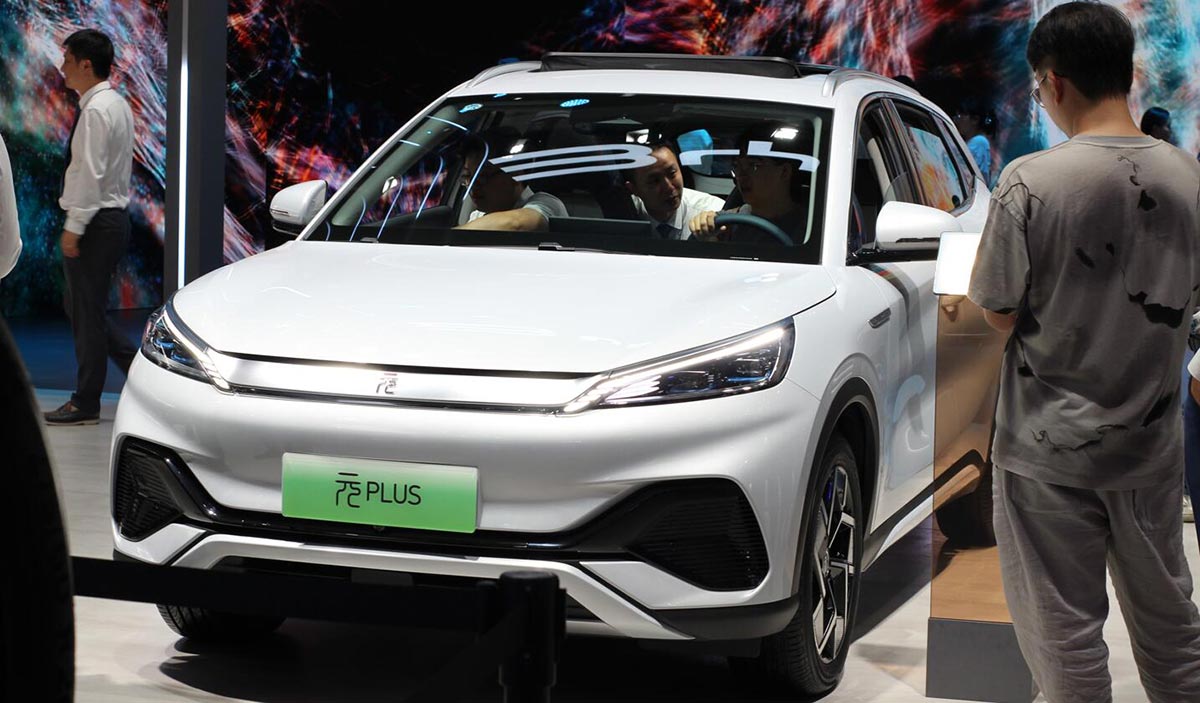الاتحاد الأوروبي يبدأ تحقيقا رسميا في المركبات الكهربائية الصينية لانتهاكات الدعم; الصين تعرب عن رفضها
الاتحاد الأوروبي (الاتحاد الأوروبي) has officially commenced an anti-subsidy investigation into السيارات الكهربائية (المركبات الكهربائية) مستورد من الصين, بعد الإعلان عن هذه الخطة الشهر الماضي. وقد أعربت الصين بسرعة عن معارضتها لهذا الإجراء..
في بيان رسمي صدر اليوم, أعلنت المفوضية الأوروبية, “The European Commission has formally launched today an anti-subsidy investigation into the imports of battery electric vehicles (بيف) from China.”
The investigation’s primary objective is to determine whether the Chinese EV value chain has benefited from what is deemed “illegal subsidization” and whether these subsidies have caused or pose a threat of causing economic harm to EU-based EV manufacturers, according to the announcement.
Depending on the results of the investigation, the European Commission will decide whether it is in the EU’s best interest to address the effects of “unfair trade practices” by imposing countervailing duties on EV imports from China, the statement explained.
This investigation was initiated by the European Commission independently, as it had gathered sufficient evidence suggesting that the recent influx of low-priced subsidized EVs from China poses an economic threat to the EU’s EV industry. It’s worth noting that no formal complaint from EU industry players was necessary to initiate these proceedings, as EU anti-subsidy rules mandate cooperation with ex officio investigations.

The European Commission also emphasized that pre-initiation consultations with the Chinese government were conducted in accordance with EU and WTO regulations before the initiation notice was issued.
The notice further outlined, “The investigation will be concluded within a maximum of 13 أشهر من البدء. If legally warranted, any provisional anti-subsidy duties may be imposed by 9 months after initiation, with any definitive measures to be imposed up to 4 months later or within 13 months of the initiation of the investigation.”
The European Commission had revealed its intention to launch this investigation the previous month, with European Commission President Ursula von der Leyen expressing concerns about the global market being inundated with inexpensive EVs from China. She cited significant state subsidies in China that keep EV prices artificially low, distorting the EU market.
في ذلك الوقت, China’s Ministry of Commerce (MOC) and the China Chamber of Commerce to the EU (CCCEU) both voiced their opposition to the EU’s plans. Following the European Commission’s formal announcement of the investigation today, Chinese authorities reiterated their position.
The MOC issued a statement, asserting that the European side initiated this anti-subsidy investigation based on subjective assumptions regarding the so-called subsidy program and potential harm, without presenting sufficient evidence. It also stated that this action does not align with relevant WTO rules and expressed China’s strong dissatisfaction.
علاوة على ذلك, China criticized the EU for demanding that China conduct consultations within an unusually short timeframe and for failing to provide effective consultation materials, which China perceived as undermining its rights.
China contended that the EU’s move was a guise for protecting its own industry and constituted a blatant act of protectionism. It argued that this action would severely disrupt and distort the global automotive industry and supply chain, negatively impacting China-EU economic and trade relations. China called on the EU to exercise trade remedy measures cautiously, considering the global industrial and supply chain’s stability and the overall situation of the China-EU comprehensive strategic partnership.
الاضافه الي ذلك, China urged the EU to foster deeper cooperation in the new energy industry, particularly in the EV sector, and create a fair, non-discriminatory, and predictable market environment for joint development in China and Europe.
China pledged to closely monitor the EU’s follow-up investigation procedures and vigorously protect the legitimate rights and interests of Chinese enterprises, as stated in the announcement.
Separately, the China Association of Automobile Manufacturers (CAAM) expressed regret and firm opposition to the EU’s move, stating that it would severely disrupt the global automotive industry chain and supply chain. CAAM emphasized that China’s EV market is highly competitive and not shielded by subsidies.

 السيارات في الصين
السيارات في الصين